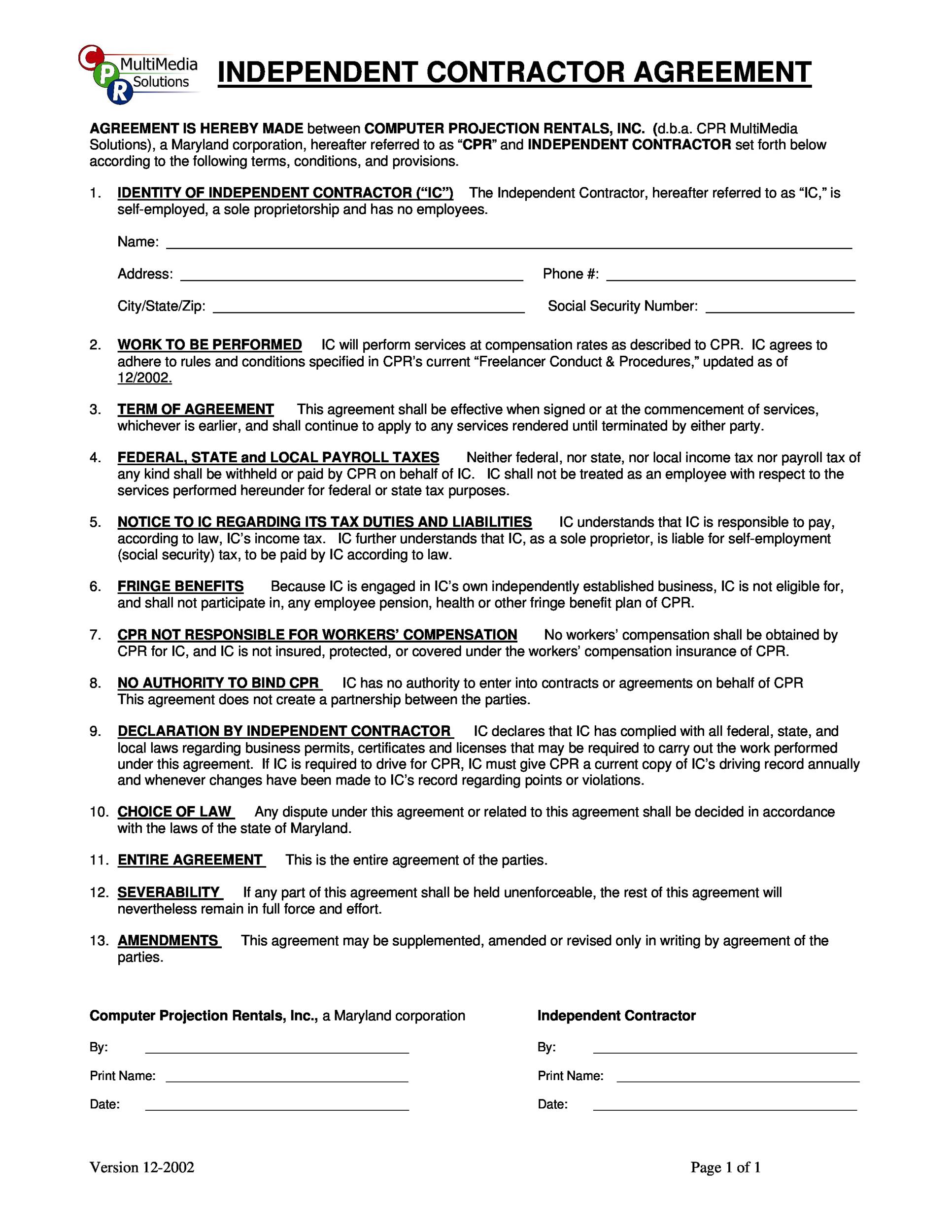When it comes to working as a freelancer or hiring freelancers for your business, having a freelance contractor agreement is crucial. This legal document outlines the terms and conditions of the working relationship between the freelancer and the client, ensuring that both parties are protected and understand their rights and responsibilities.
In this article, we will delve into the details of a freelance contractor agreement, including what it is, why it is important, and how to create an effective agreement. Whether you are a freelancer looking to protect yourself or a business owner seeking to hire freelancers, this guide will provide you with all the information you need.
What is a Freelance Contractor Agreement?
A freelance contractor agreement, also known as an independent contractor agreement or a freelance service agreement, is a contract between a freelancer and a client. It establishes the terms and conditions of the working relationship, including the scope of work, payment terms, intellectual property rights, confidentiality clauses, and dispute resolution processes.
Essentially, this agreement is a legally binding document that protects both the freelancer and the client by clearly defining their rights and obligations. It helps to prevent misunderstandings, disputes, and legal issues that may arise during the project.
Why is a Freelance Contractor Agreement Important?
Having a freelance contractor agreement in place is essential for both freelancers and clients. Here are some reasons why:
- Protection for Freelancers: A well-drafted agreement ensures that freelancers are paid for their work, have clear expectations regarding the project’s scope, and are protected from any potential liability.
- Protection for Clients: With a freelance contractor agreement, clients can ensure that the freelancer delivers the agreed-upon work, meets deadlines, and maintains the confidentiality of sensitive information.
- Clarity and Understanding: The agreement helps to establish clear expectations and responsibilities for both parties involved, reducing the likelihood of misunderstandings or disputes.
- Legal Compliance: Freelance contractor agreements ensure that both parties comply with relevant employment laws, tax regulations, and intellectual property rights.
How to Create an Effective Freelance Contractor Agreement
Now that you understand the importance of a freelance contractor agreement, let’s take a look at the essential elements that should be included in the agreement:
1. Parties Involved
Clearly state the names and contact information of both the freelancer and the client. This section should also identify each party’s legal entity or business name.
2. Scope of Work
Define the specific services or work that the freelancer will provide. Be as detailed as possible to avoid any misunderstandings.
3. Payment Terms
Specify the agreed-upon payment structure, including the amount to be paid, payment schedule, and any additional expenses reimbursed.
4. Intellectual Property Rights
Outline the ownership and usage rights of any intellectual property created during the project. This section should clearly state who retains the rights and whether any licenses or permissions are granted.
5. Confidentiality and Non-Disclosure
Include clauses that protect the confidentiality of any sensitive information shared during the project. This section should outline the obligations of both parties to maintain confidentiality.
6. Termination Clause
Specify the circumstances under which either party can terminate the agreement. This section should also outline any notice periods required.
7. Dispute Resolution
Include a clause that outlines the process for resolving any disputes that may arise. This can include mediation, arbitration, or litigation.
8. Governing Law and Jurisdiction
Specify the governing law and jurisdiction that will apply in case of any legal disputes.




5 Tips for Freelancers and Clients
- Clearly Define Project Requirements: Ensure that both parties have a clear understanding of the project scope, deliverables, and deadlines.
- Communicate Effectively: Regular communication is key to a successful working relationship. Keep all parties informed of progress, changes, or issues that may arise.
- Agree on Payment Terms: Establish a clear payment structure and agree on payment terms upfront to avoid any confusion or delays.
- Maintain Professionalism: Both freelancers and clients should maintain a professional and respectful attitude throughout the project.
- Seek Legal Advice: If you have any doubts or concerns about the freelance contractor agreement, it is always advisable to seek legal advice to ensure that your rights are protected.
In Conclusion
A freelance contractor agreement is a vital document for both freelancers and clients. It provides legal protection, establishes clear expectations, and helps to prevent disputes or misunderstandings. By creating an effective agreement and following best practices, freelancers and clients can ensure a successful and mutually beneficial working relationship.
Freelance Contractor Agreement Template Word – Download
